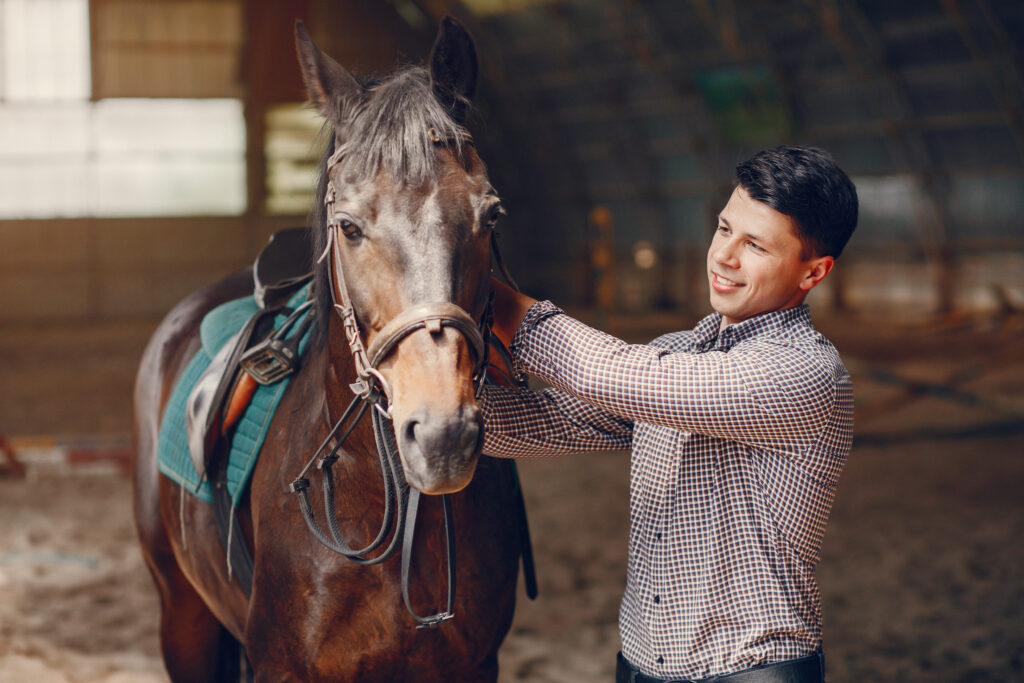Equine-assisted therapy is a powerful therapeutic approach involving interactions with horses to support mental and physical well-being. Often called equine therapy or equine horse therapy, it is known to reduce stress, improve emotional health, and even aid physical rehabilitation. Let's explore what equine-assisted therapy is, why horses are ideal therapy partners, and the wide-ranging benefits this form of therapy offers.
What is Equine-Assisted Therapy?
Equine-assisted therapy, also known as equine therapy, involves structured activities and interactions with horses. This type of therapy is used to help individuals struggling with various mental health conditions, including PTSD, anxiety, and depression. While traditional talk therapy offers valuable support, equine therapy adds a unique experiential dimension, allowing individuals to gain insight and heal through direct interaction with a horse.

Why Horses? The Unique Qualities of Horses in Therapy
Horses are uniquely suited to therapy because of their heightened sensitivity to human emotions. Their non-judgmental nature and calm demeanor make them ideal therapy partners, especially for individuals who struggle with trust, vulnerability, or low self-esteem. In equine-assisted therapy, participants learn to connect with horses through activities like grooming, leading, and riding. Horses mirror human emotions, providing instant feedback that can be therapeutic for those learning to regulate their emotions.
Mental Health Benefits of Equine-Assisted Therapy
Reducing Anxiety and Depression
One of the most significant benefits of equine-assisted therapy is, indeed, its ability to reduce anxiety and depression. In fact, the calm, steady presence of a horse promotes relaxation, helping participants feel at ease. Moreover, by focusing on bonding with the horse, individuals shift their attention away from stressors and, as a result, find peace in the moment.

Building Confidence and Emotional Growth
Equine therapy encourages participants to develop self-confidence and trust. Many individuals struggling with low self-esteem or past trauma find emotional growth in the process of working with horses. For example, leading a horse successfully can provide a sense of accomplishment and empowerment, boosting self-confidence.
Promoting Mindfulness and Emotional Regulation
Horses live in the present, which naturally encourages participants to practice mindfulness. This is particularly helpful for those who tend to overthink or worry about the future. By focusing on the horse and the task at hand, individuals experience the benefits of being present, which is vital for emotional regulation.
For more insights into animal-assisted therapy techniques, check out our post on 3 Powerful Therapy Techniques Enhanced by Animal-Assisted Therapy.
Physical Benefits of Equine Therapy
Beyond mental health, equine-assisted therapy offers several physical benefits, particularly for individuals with mobility issues or physical disabilities. The act of riding or interacting with a horse can improve balance, coordination, and muscle strength. Equine therapy has been especially beneficial for individuals recovering from conditions like cerebral palsy, stroke, or injury, as it supports muscle control and flexibility.
Therapeutic riding programs, a component of equine therapy, allow participants to develop motor skills while improving their sense of balance. Explore how therapy animals can aid in physical rehabilitation by checking out our post : Horses Therapy Benefits for Mental Health on our blog.

Types of Equine-Assisted Therapy Programs
Equine-assisted therapy encompasses several types of programs, each designed to support different therapeutic goals:
- Therapeutic Riding: Focuses on physical rehabilitation, enhancing motor skills, and building strength.
- Equine-Facilitated Psychotherapy: Emphasizes emotional growth and healing, addressing issues like trauma and anxiety.
- Hippotherapy: Uses the movement of a horse to improve physical health, often guided by physical therapists for individuals with disabilities.
These programs are adaptable, making equine therapy accessible to a wide range of individuals with varied needs.
Conclusion
In summary, equine-assisted therapy provides profound mental and physical health benefits through the unique healing power of horses. Whether it's reducing anxiety, building confidence, or aiding physical rehabilitation, equine therapy offers a comprehensive, experiential approach to well-being. To learn more about animal-assisted therapies and their impact on mental health, check out the American Psychological Association’s insights on animal therapy.

